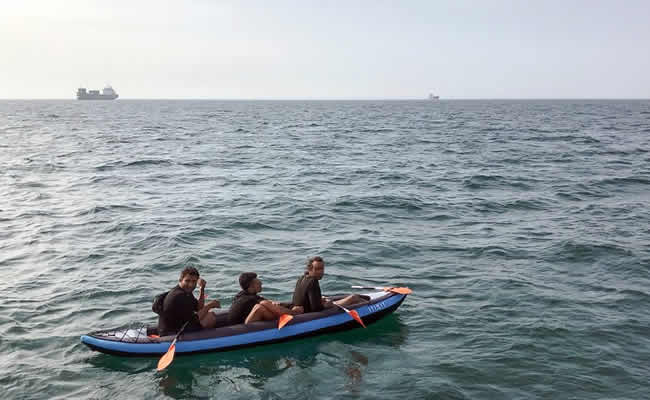Britain and Germany have formalised a joint action plan to intensify efforts against migrant smuggling networks.
The agreement was signed during a high-level meeting of European interior and migration ministers in London on Tuesday, which was posted on the UK website.
The gathering included representatives from France, Belgium, and the Netherlands, as well as officials from Europol and Frontex.
The discussions were part of the Calais Group, an initiative aimed at tackling the increasing challenge of irregular migration and the smuggling networks exploiting vulnerable individuals.
Nearly 34,000 undocumented migrants have crossed the English Channel to the UK this year, often in dangerous and overcrowded vessels.
With 70 fatalities recorded, 2024 has become the deadliest year for such crossings.
As part of the agreement, Germany has pledged to amend its laws to enable the prosecution of smugglers facilitating crossings from northern France to Britain.
German prosecutors will be granted enhanced tools to target the supply and storage of equipment, such as inflatable boats, used by smuggling networks.
This is expected to bolster UK-German law enforcement capabilities against human trafficking and people smuggling.
Germany’s ambassador to London, Miguel Berger acknowledged the significant role smuggling networks play in facilitating illegal migration from Belarus through Poland to Germany and eventually across the Channel.
The joint plan is expected to address these routes, which have flourished in the absence of UK participation in EU immigration accords following Brexit.
UK Home Secretary Yvette Cooper emphasised the urgency of dismantling these networks, describing their activities as inhumane and dangerous.
Cooper said, “For too long organised criminal gangs have been exploiting vulnerable people, undermining border security in the UK and across Europe while putting thousands of lives at risk. We are clear that this cannot go on.
“Germany is already a key partner in our efforts to crack down on migrant smuggling, but there is always more we can do together. Our new joint action plan will deliver a strengthened partnership with Germany, boosting our respective border security as we work to fix the foundations and ultimately saving lives.”
Germany’s Interior Minister Nancy Faeser echoed the sentiment, highlighting the grave risks posed to human lives by these criminal operations.
“We are now stepping up our joint action to fight the brutal activities of international smugglers. This is at the core of our joint action plan that we have agreed in London. I am very grateful to my British counterpart Yvette Cooper that we were able to reach this important agreement.
“It will help us end the inhumane activities of criminal immigrant smuggling organisations. By cramming people into inflatable boats under threats and violence and sending them across the Channel, these organisations put human lives at risk.
“Many of these crimes are planned in Germany. Together, we are now countering this unscrupulous business with human hardship with even more resolve. This includes maintaining a high investigative pressure, exchanging information between our security authorities as best as possible, and persistently investigating financial flows to identify the criminals operating behind the scenes,” he said.
The action plan also includes enhanced intelligence sharing, disruption of illicit financial flows, and coordinated efforts to prosecute smugglers.
Prime Minister Keir Starmer, who appointed former police chief Martin Hewitt to lead border security earlier this year, has described smuggling networks as a global security threat on par with terrorism.
